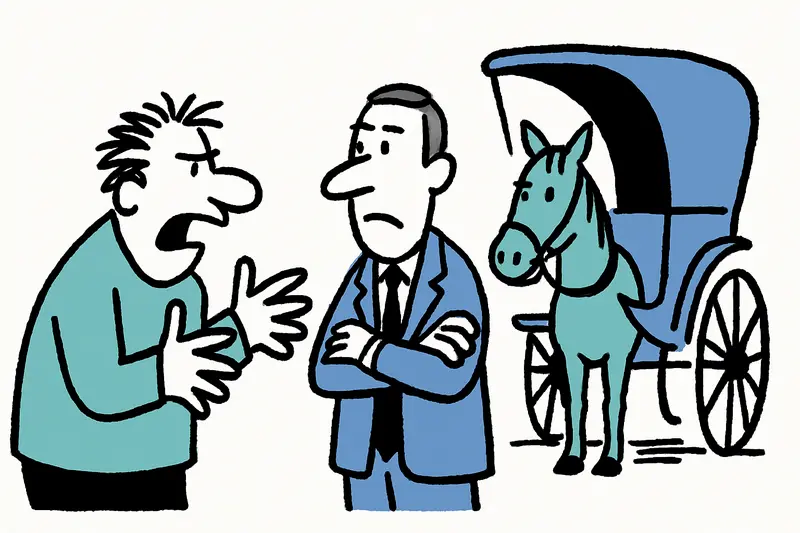The debate over Palma's Old Town horse-drawn carriages remains deadlocked: a political majority in favor, decisions few and far between. Money, licenses and alternatives fuel the controversy.
Between Old Town Romance and Disputes: Palma's Horse-Drawn Carriages Remain a Controversial Issue
If you wander in the late afternoon through the winding streets around Passeig del Born, you still hear them: the clatter of hooves, the rattle of wheels, a driver's call. For some it's a piece of Palma; for others, it is no longer timely. The debate has been going on for years—and there is no clear resolution.
Why the topic keeps resurfacing
In short: there is a political majority that wants to abolish the horse-drawn carriages. Still, little happens. The reason lies not only in the heart but in paperwork and pockets: many licenses were once granted for life and are inheritable. A license buyback would be costly. Internally they now talk about sums in the millions of euros. That makes decisions difficult—especially in a town hall that dislikes surprises in big expenditures.
Moreover, various interests clash: animal welfare advocates who repeatedly point to problems and accidents; carriage drivers who fear for their livelihoods; tourists who cling to the nostalgic ride; and politicians who could lose votes if they act too quickly. No wonder the debate sometimes moves along more stubbornly than clearly.
What options are on the table?
Several paths are being discussed: the classic buyback of licenses, a switch to electrically powered vehicles, or a swap for other trade licenses—such as taxi or delivery rights. Each solution has pitfalls. Electric carriages have been tried in other places, but they do not run there without friction. And taxi drivers will hardly be enthusiastic if carriage owners suddenly receive taxi licenses.
Practically for the city would be a step-by-step solution: for new applications, no perpetual rights; buy back existing licenses with incentives and parallel pilot projects with low-emission vehicles. It sounds simple, but it's not: costs must be laid out transparently, the carriage drivers must be socially safeguarded, and the public well informed.
In the end, it is also a question of image: Does Palma want to cling to a nostalgic tourist attraction that is increasingly criticized—or manage the transformation gradually before protests and scandals dominate the cityscape? In Plaça Major, where conversations are often held over coffee, you now hear more often the phrase: “It is time for a decision.”
Until then, the carriages remain on the cobblestones—28 of them, as you can count on a typical weekday—and Palma's politics continues to juggle licenses, costs and morals. It sounds bureaucratic. It is. But between official letters and the clatter of hooves, a decision will determine how Palma sounds in the future.
I spoke with a carriage driver on a Tuesday evening—she mainly wished for clarity. That is how many people feel: no one loves uncertainty.
Similar News

Ibiza: Clubs Hosted Closing Parties Despite Weather Warning
Despite an official weather warning and calls to postpone large events, several Ibiza clubs held the closing parties. Pu...

Nearly Eight Tonnes of Garbage Recovered from the Sea Off the Balearic Islands
In September, nearly eight tonnes of waste were collected from the waters off the Balearic coasts. Boats around Mallorca...

Unified Taxi Tariff Now Also in Binissalem and Llubí
Binissalem and Llubí have joined the unified taxi network. Passengers should get a taxi faster, and drivers will be allo...

Constant Rain Instead of Autumn Sun: What Vacationers Should Expect on Mallorca
With Storm System Alice, there is currently no beach weather in sight on Mallorca. Weather warnings, flooded roads, and ...

Autumn Rain in Alcúdia: Mild Day with Showers on October 13, 2025
Light to moderate rain marks October 13 in Alcúdia. Despite clouds, temperatures stay unusually mild – ideal for a relax...
